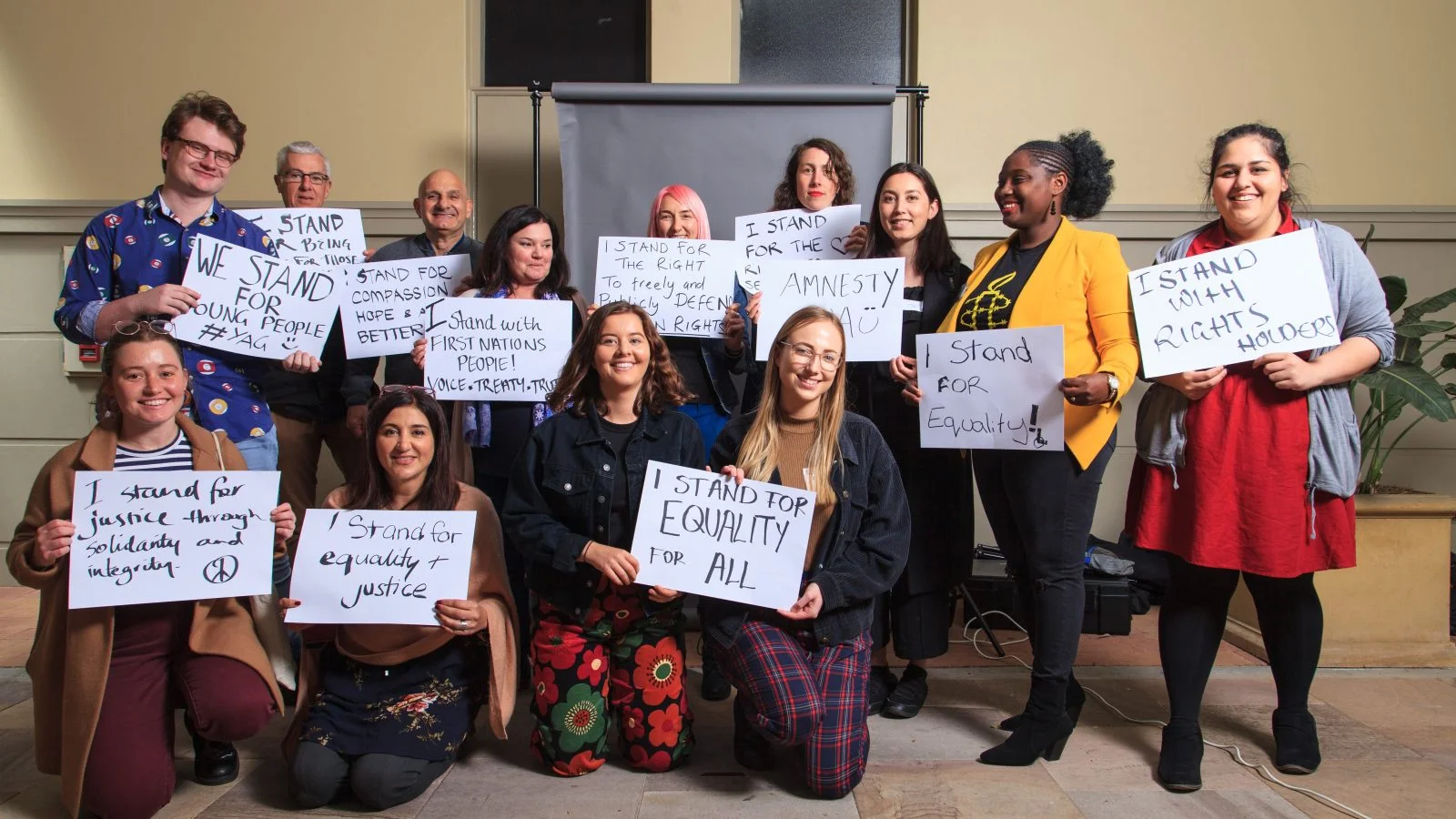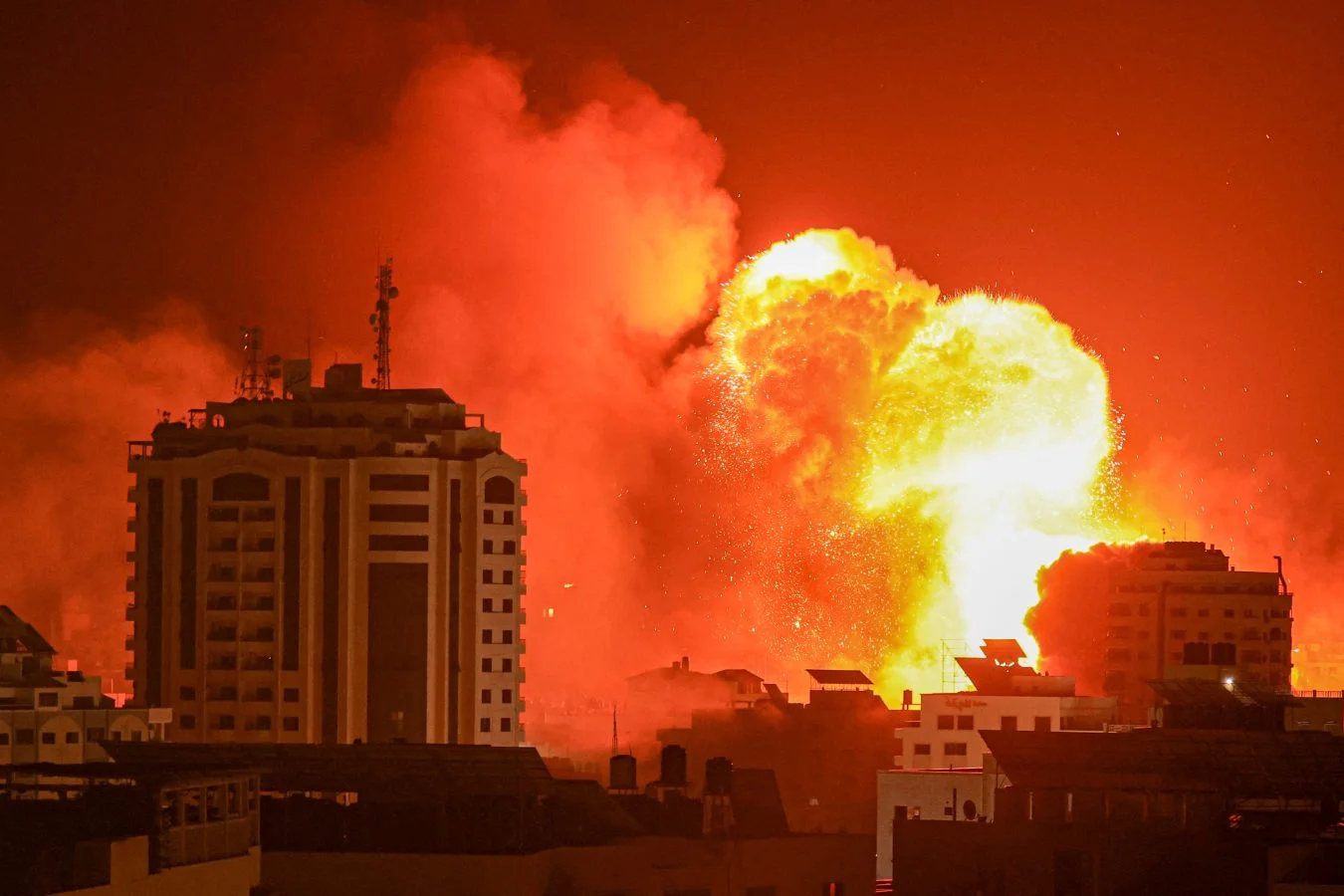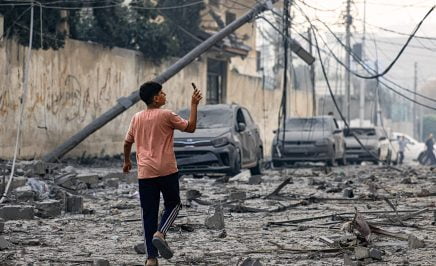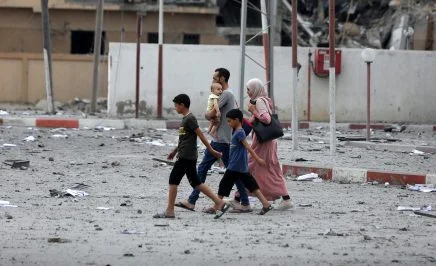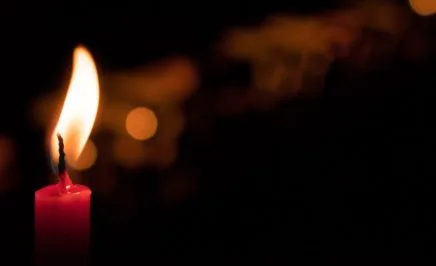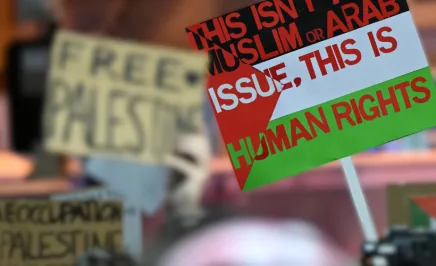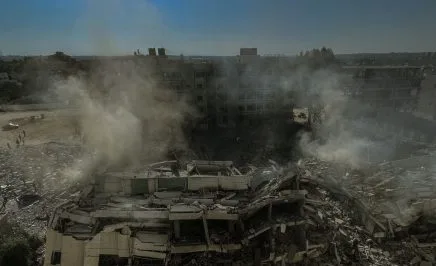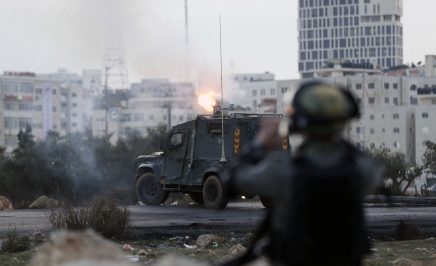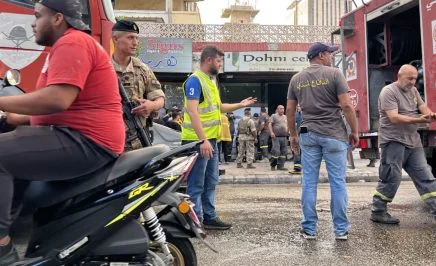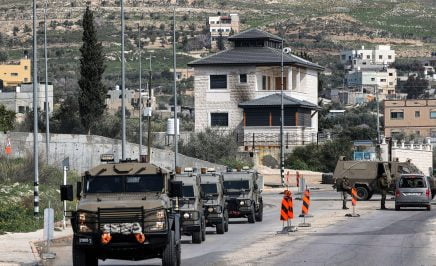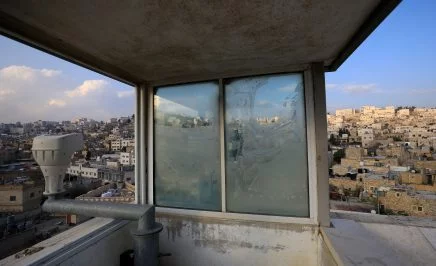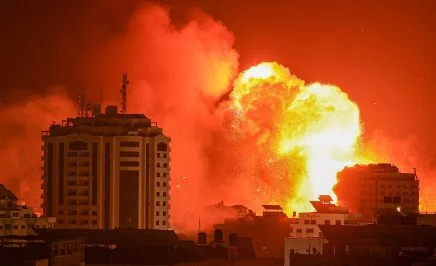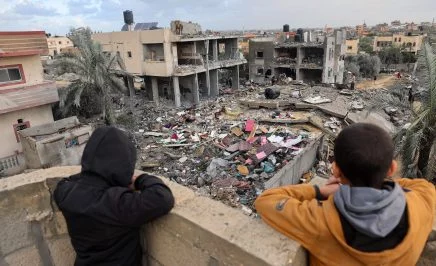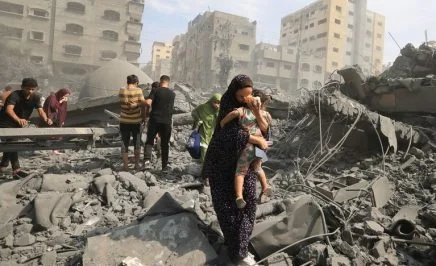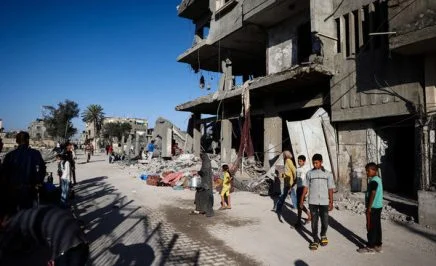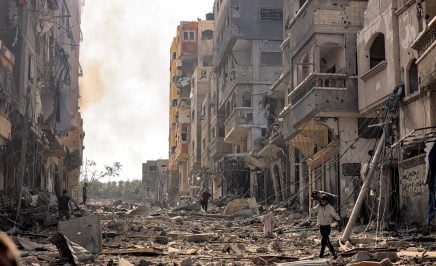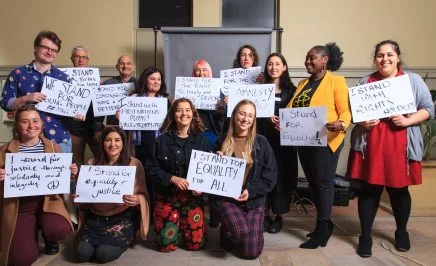The Israel and Gaza Crisis
We may not know when a crisis will occur, but when it does, Amnesty International’s crisis team is ready to collect evidence of human rights abuses that will help end the abuse and bring perpetrators to justice. Whether it’s the current conflict between Israel and Palestinian armed groups in Gaza, or the ongoing humanitarian crisis in Syria, we’re ready to help people at risk of human rights abuses and bring about long-lasting change.
The recent escalation in hostilities between Israel and Palestinian armed groups in Gaza has led to a humanitarian catastrophe, with a mounting civilian death toll. As the world watches in horror, Amnesty International has been hard at work. Our teams have been researching, monitoring, and documenting human rights abuses.
Our experts are carrying out painstaking verification of the findings in our Crisis Evidence Lab to expose crimes under international law. We’re speaking to survivors and eyewitnesses, analysing satellite imagery, and verifying photos and videos of the attacks.
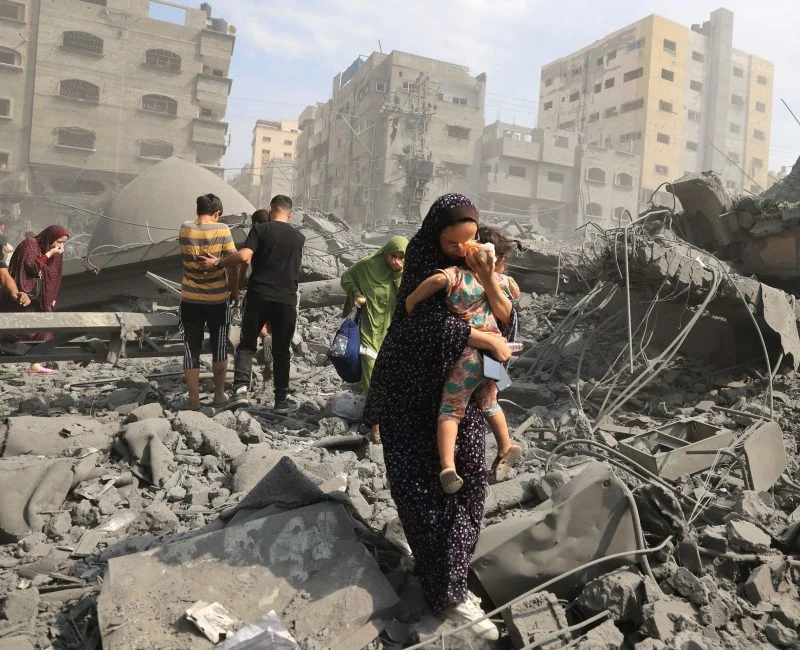
The Israel and Gaza crisis in depth
Updated: 24 September 2024
In January 2024, the International Court of Justice (ICJ) ruled that there is a real risk of genocide of Palestinians in Gaza, ordering Israel to take preliminary measures to protect civilians. In September 2024, the UN General Assembly adopted a resolution demanding that Israel end its unlawful presence in the Occupied Palestinian Territory within 12 months, in compliance with the ICJ advisory opinion.
“Today’s resolution makes crystal-clear that Israel’s 57-year occupation of the Occupied Palestinian Territory, in flagrant violation of international law, cannot be allowed to continue any longer.” – Amnesty International’s Secretary General, Agnès Callamard
The Australian government has an obligation to do everything in its power prevent genocide. Now, more than ever, Australia must stop exporting arms to Israel, to protect the people of Gaza from further suffering.
Australia: Stop Exporting Arms to Israel – Amnesty International Australia
Over the last year, we’ve witnessed horrors unfolding on an unimaginable scale in Israel and the Occupied Palestinian Territory. More than two million people in the Gaza Strip are struggling to survive amidst a catastrophic humanitarian crisis, and the level of civilian casualties has been unprecedented. Tens of thousands have been killed or injured since the violence broke out in early October 2023, with hundreds of people taken hostage by Palestinian armed groups. Serious violations of international humanitarian law – including war crimes – by all parties to the conflict continue unabated.
Attacks by Palestinian armed groups
On 7 October 2023, Hamas and other armed groups carried out horrific attacks in southern Israel killing 1,139 people and taking over 200 hostages and displaying a chilling disregard for life and for international law.
Israeli strikes hitting civilian targets
Israeli forces launched thousands of air and ground strikes on the Gaza Strip, obliterating entire families and destroying whole neighbourhoods. As of 13 September 2024, these indiscriminate attacks have killed more than 40,861 people, the vast majority of them civilians. 94,398 people have been injured and a staggering 1.9 million have been displaced in Gaza (according to the United Nations office for Coordination of Humanitarian Affairs). An unknown number of bodies remain buried in the rubble.
Amnesty International has documented unlawful Israeli attacks, which have caused mass civilian casualties and must be investigated as war crimes. We spoke to survivors and eyewitnesses, analysed satellite imagery, and verified photos and videos to investigate air bombardments carried out by Israeli forces between 7 and 12 October. These caused horrific destruction and, in some cases, wiped out entire families. Amnesty International is continuing to investigate dozens of attacks in Gaza.
They have pulverized street after street of residential buildings killing civilians on a mass scale and destroying essential infrastructure, while new restrictions mean Gaza is fast running out of water, medicine, fuel and electricity. Testimonies from eyewitness and survivors highlighted, again and again, how Israeli attacks decimated Palestinian families, causing such destruction that surviving relatives have little but rubble to remember their loved ones by.
– Agnès Callemard, Amnesty International’s Secretary General
The looming ground offensive by Israeli forces into Gaza could have cataclysmic consequences for Gaza’s civilians, as foretold by the ominous threats issued by the Israeli military to civilians in northern Gaza. Israel has ordered the more-than one million residents of northern Gaza to evacuate to the south. They’ve dropped pamphlets warning that those who remain “may be determined an accomplice in a terrorist organisation.” With dwindling access to fuel, severe damage to roads caused by Israeli bombardment, and attacks on people fleeing, civilians have nowhere to seek safety.
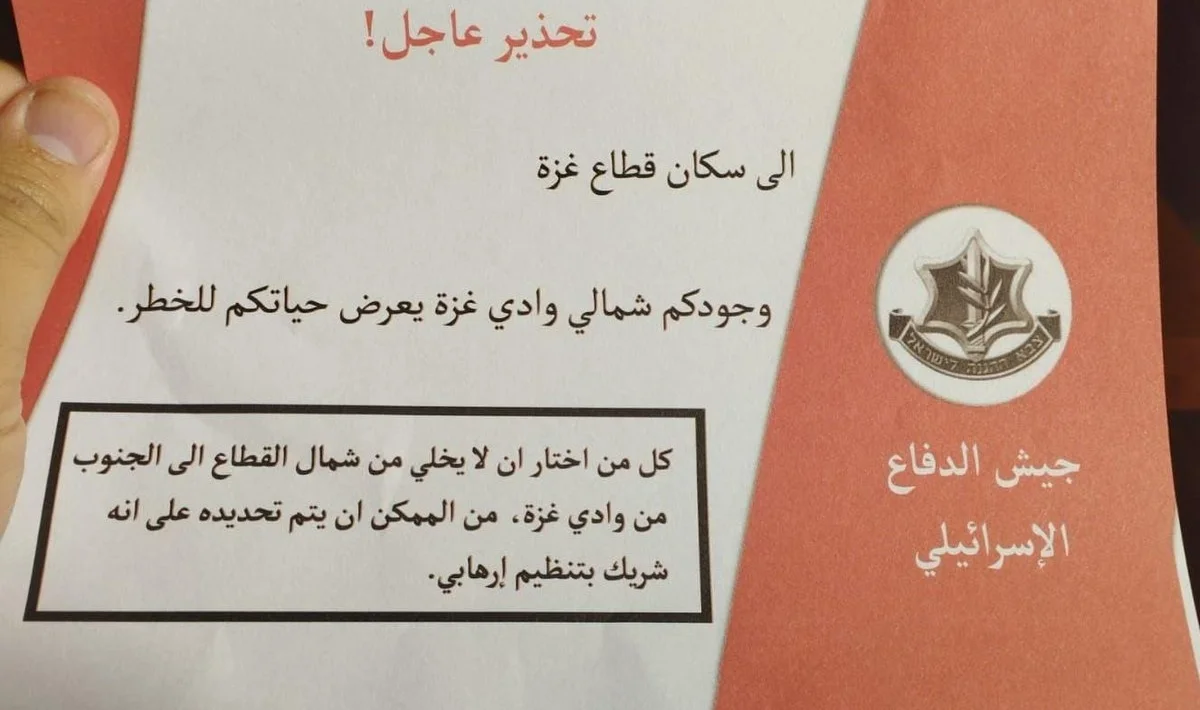
A leaflet carrying the insignia of the Israeli military reading in Arabic: “Anyone who chooses not to leave from the north of the [Gaza] Strip to south of Wadi Gaza may be determined an accomplice in a terrorist organization.” © X (formerly Twitter)
Civilians in Israel also continue to come under attack from indiscriminate rocket fire from Hamas and other armed groups in Gaza.
Cutting off of food, water, electricity, and fuel
Israel has imposed a siege on Gaza, cutting its residents off from all water, food, electricity and fuel. Hospitals are already overloaded with patients injured by Israeli attacks and are struggling to deal with the humanitarian crisis. These hospitals are treating hundreds of wounded each day, in addition to pregnant women, babies in incubators and severely ill patients, forcing doctors to operate in corridors and tents outside the premises. As the fuel reserves run out and electricity cuts become more frequent, the lives of thousands of patients are at risk.
What are the root causes of this conflict?
The root causes of this conflict lie in Israel’s illegal, 16-year blockade of the Gaza Strip, which amounts to collective punishment of the entire civilian population. The air, land and sea blockade is a tool of Israel’s system of apartheid. These root causes must be addressed if the cycle of violence is to be broken.
Amnesty International’s extensive research and legal analysis have demonstrated that Israel enforces a system of apartheid against Palestinians. It does this through laws, policies, and practices that ensure discriminatory treatment that is prolonged and cruel.
Apartheid is a crime against humanity committed with the specific intent of maintaining a system of control by one racial group over another. Under apartheid, Israeli authorities control virtually every aspect of Palestinians’ lives. It subjects them to daily oppression and discrimination through territorial fragmentation and legal segregation.
The international community, including Australia, has failed to hold Israel to account for upholding this system. The continued repression of Palestinians is a direct result of this inaction.
Until apartheid is dismantled, there is no hope of protecting civilian lives. There’s no hope of justice for grieving families in Palestine and Israel.
In 2022 Amnesty International produced a report on Israel’s apartheid system. Download the Apartheid against Palestinians by Israel report here.
Australians restricted from exercising their right to protest Israeli actions
As the crisis unfolds, we’ve seen attacks on the right to protest in Australia and elsewhere. People protesting the Israeli attacks on Gaza and advocating for the human rights of Palestinians have had their right to protest restricted. Human rights standards are clear: state authorities have an obligation to ensure the equal and effective facilitation and protection of the right to peaceful assembly. Restricting assemblies simply because they are identified by the authorities as ‘pro-Palestinian’ or because Palestinians are expected to participate amounts to racial discrimination.
War or armed conflict shatters millions of lives every year. Some of these conflicts, like Russia’s invasion of Ukraine, play out between states. But many more happen within a single state’s borders. In Syria, government forces, long supported by Russia, continue to fight foreign-backed armed groups for control of territory. In Somalia, fighters from the Al-Shabaab armed group continue to resist the government’s attempts to extend its control.
No matter the cause of war or the forces involved, the results are devastating. Armed conflicts mean horrific loss of civilian life, massive displacement, and violations of human rights and international humanitarian law.
From Afghanistan to Yemen, Amnesty International documents and campaigns against violations of international law during armed conflicts. We investigate human rights abuses, regardless of who the perpetrator is or where the abuse occurs. We shed light on the heightened vulnerability of at-risk groups, such as older people, children and people with disabilities. Amnesty also supports survivors’ demands for justice and accountability from national authorities and international institutions, including the UN and International Criminal Court.
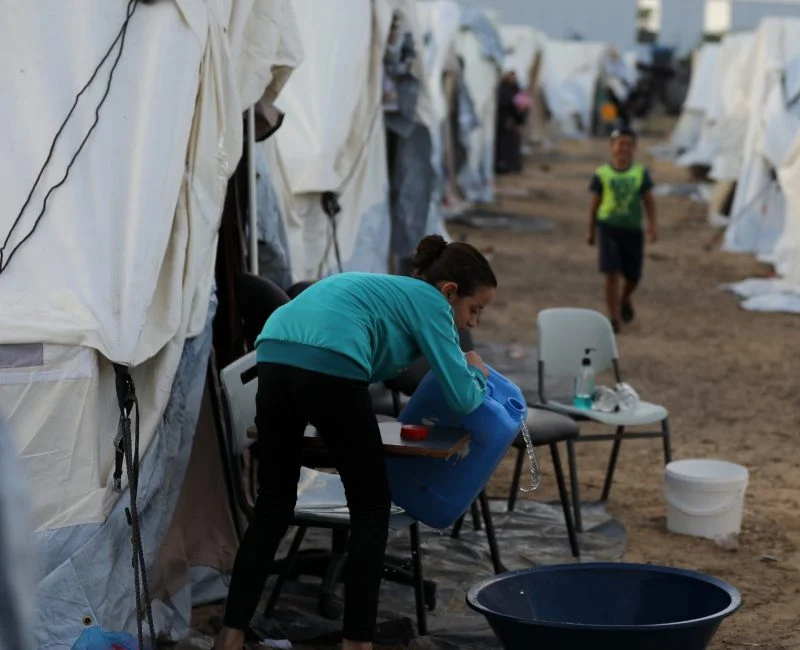
What we’re doing
We want a world where human rights are no longer under fire. Governments and people in power everywhere must respect everyone’s human rights and allow civilians to live safely, without fear. When human rights are attacked, Amnesty will call on the human rights abusers to be held accountable and brought to justice.
In the unfolding conflict in Israel and Gaza, Amnesty is urgently calling for an immediate ceasefire by all parties to prevent further loss of civilian lives and to ensure access to life-saving aid for people in Gaza amidst an unprecedented humanitarian catastrophe.
Amnesty’s campaign to end the escalating humanitarian crisis in Gaza in depth
When we promote and defend human rights, we can create a better world for ourselves and others.
In January 2024 the International Court of Justice ruled that there is a real risk of genocide of Palestinians in Gaza and ordered Israel to take preliminary measures to protect civilians. The Australian government has an obligation to do everything in its power prevent genocide. Now, more than ever, Australia must stop exporting arms to Israel, to protect the people of Gaza from further suffering.
Email the Defence Minister and call for Australia to stop exporting arms to Israel.
In a joint statement, Amnesty, alongside over a hundred other civil society organisations in Australia, called on the Australian government to act on the escalating humanitarian crisis in Gaza and call for a ceasefire. Signatories asked that the Australian government intervene and call for the Israeli forces to make every effort to protect the lives of civilians. They called for the government to continue to call for restraint and for the protection of civilians, but to condemn all war crimes, regardless of the perpetrator.
CloseOur Wins
